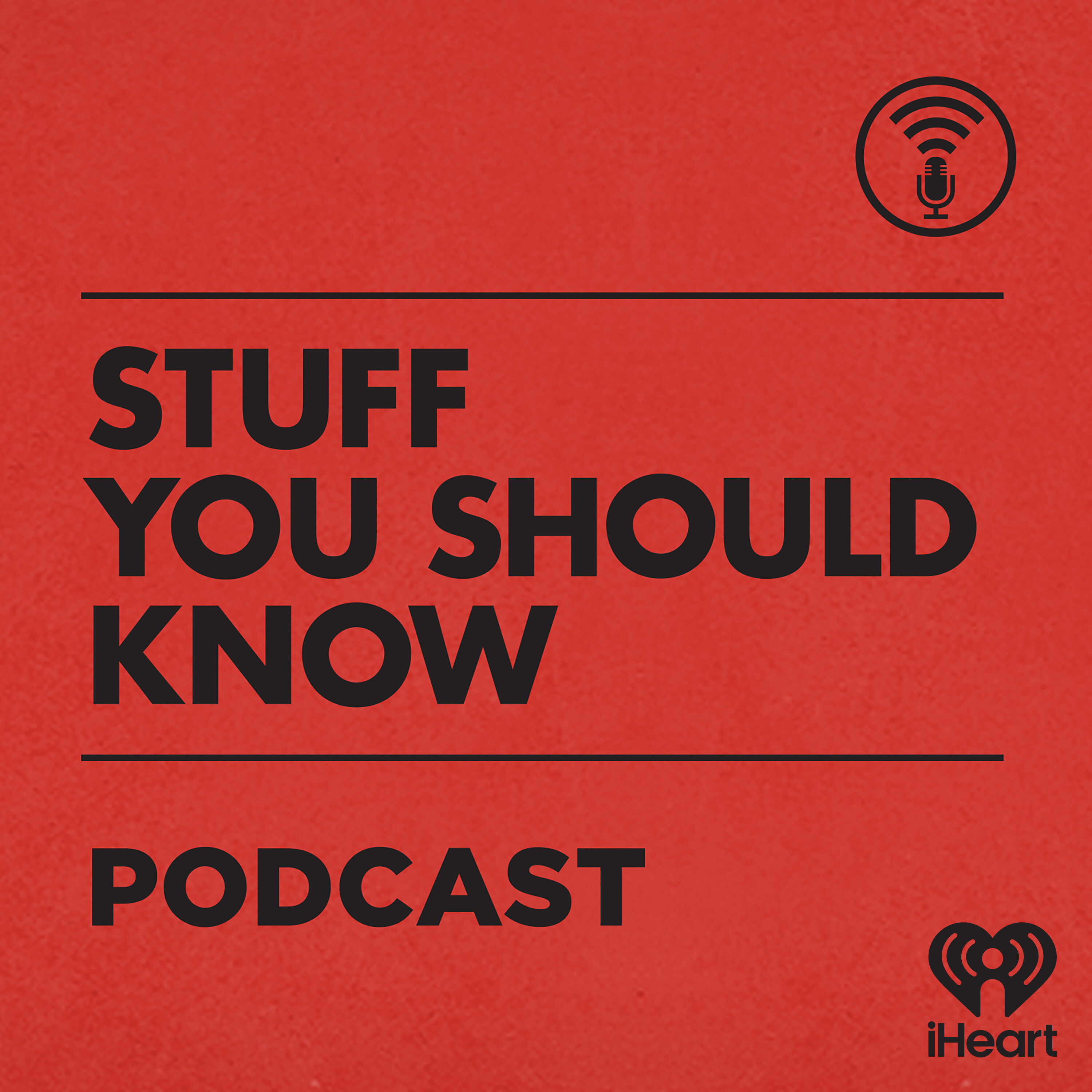Episode

How Menstruation Works
Description
Two dudes talking about menstruation? You bet! And there’s no way you could be any more nervous to listen than we were to record it. But give it a listen, we think you’ll find it enlightening – whether you menstruate or not.See omnystudio.com/listener for privacy information.
Chapters
In this episode of Stuff You Should Know, Chuck and Josh discuss menstruation and the science behind it.
00:00 - 01:40 (01:40)
Summary
In this episode of Stuff You Should Know, Chuck and Josh discuss menstruation and the science behind it.
EpisodeHow Menstruation Works
PodcastStuff You Should Know
The hosts of the podcast address the importance of using inclusive language when discussing puberty, including using terms like "people who menstruate" to encompass the trans community.
01:40 - 04:25 (02:45)
Summary
The hosts of the podcast address the importance of using inclusive language when discussing puberty, including using terms like "people who menstruate" to encompass the trans community.
EpisodeHow Menstruation Works
PodcastStuff You Should Know
Menstruation is an energy-intensive process, and in developing nations, women who are malnourished may stop menstruating altogether.
04:25 - 11:23 (06:58)
Summary
Menstruation is an energy-intensive process, and in developing nations, women who are malnourished may stop menstruating altogether. Animals that have a uterus ready to accept an egg also expend more energy to maintain their uterus, leading to different reproductive cycles depending on the species.
EpisodeHow Menstruation Works
PodcastStuff You Should Know
An exploration of menstrual cycles in animals dives into one of the biggest questions in evolutionary biology - why some species go through menstrual cycles while others don't, and possible reasons behind the difference.
11:23 - 16:16 (04:52)
Summary
An exploration of menstrual cycles in animals dives into one of the biggest questions in evolutionary biology - why some species go through menstrual cycles while others don't, and possible reasons behind the difference.
EpisodeHow Menstruation Works
PodcastStuff You Should Know
The menstrual cycle and ovulation cycle have distinct roles in preparing the body for possible pregnancy.
16:16 - 24:08 (07:52)
Summary
The menstrual cycle and ovulation cycle have distinct roles in preparing the body for possible pregnancy. The menstrual cycle is a four-week process that includes the proliferative phase, during which hormone estradiol prompts the endometrium to thicken in preparation for an egg.
EpisodeHow Menstruation Works
PodcastStuff You Should Know
This episode explains the role of the luteal phase in menstruation and how the endometrium is created to host a fertilized egg, which, if not fertilized, is shed through the menstrual period.
24:08 - 28:49 (04:41)
Summary
This episode explains the role of the luteal phase in menstruation and how the endometrium is created to host a fertilized egg, which, if not fertilized, is shed through the menstrual period.
EpisodeHow Menstruation Works
PodcastStuff You Should Know
Menstruation results in about five to six tablespoons of blood over five to seven days, however, heavy bleeding for beyond seven days is considered menorrhasia, and can cause iron deficiencies and anemia.
28:49 - 33:29 (04:40)
Summary
Menstruation results in about five to six tablespoons of blood over five to seven days, however, heavy bleeding for beyond seven days is considered menorrhasia, and can cause iron deficiencies and anemia.
EpisodeHow Menstruation Works
PodcastStuff You Should Know
Sanitary products are essential for health, sanitation, and have been described as a human right.
33:29 - 38:45 (05:15)
Summary
Sanitary products are essential for health, sanitation, and have been described as a human right. A lack of protection during menstruation can be uncomfortable, highlighting the importance of having access to sanitary products.
EpisodeHow Menstruation Works
PodcastStuff You Should Know
The best plant for your space is the one that you can tolerate the best and can deal with the best.
38:45 - 45:36 (06:51)
Summary
The best plant for your space is the one that you can tolerate the best and can deal with the best. Reusable pads, particularly, are starting to see an uptick in use in countries like the United States.
EpisodeHow Menstruation Works
PodcastStuff You Should Know
This episode explores the history and culture surrounding menstruation, including the development of menstrual products, societal stigma, and cultural practices in different countries.
45:36 - 54:06 (08:29)
Summary
This episode explores the history and culture surrounding menstruation, including the development of menstrual products, societal stigma, and cultural practices in different countries.
EpisodeHow Menstruation Works
PodcastStuff You Should Know
A study conducted by the National Park Service suggests that it's possible for periods to attract bears as they have an amazing sense of smell, but the study acknowledges the jury's still out on polar bears.
54:06 - 59:27 (05:21)
Summary
A study conducted by the National Park Service suggests that it's possible for periods to attract bears as they have an amazing sense of smell, but the study acknowledges the jury's still out on polar bears. It's the variability of the menstrual cycle that accounts for people thinking that they're syncing up.
EpisodeHow Menstruation Works
PodcastStuff You Should Know
Water wings or floaties around a child's arms may not be effective in keeping their head above water if they go under, posing a safety risk.
59:27 - 1:02:18 (02:51)
Summary
Water wings or floaties around a child's arms may not be effective in keeping their head above water if they go under, posing a safety risk. Additionally, the increased sales of tampons due to an ad campaign have caused shortages in the product.
EpisodeHow Menstruation Works
PodcastStuff You Should Know
Ella Morton delves into the relationship between our brains and experiences by asking unusual questions such as whether new senses can be created for humans.
1:02:19 - 1:05:22 (03:02)
Summary
Ella Morton delves into the relationship between our brains and experiences by asking unusual questions such as whether new senses can be created for humans.